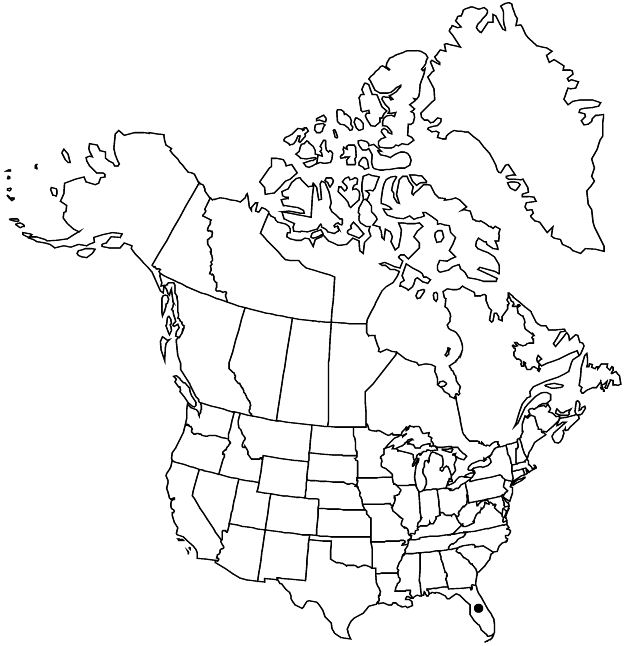Pavonia spinifex
Diss. 3: 133. 1787.
Subshrubs, 1–2 m. Stems minutely hairy to glabrate, hairs minute, recurved, often in well-defined longitudinal rows. Leaves: stipules subulate to filiform, 5–10 mm; petiole to 1/3 length of blade; blade concolorous, ovate, 4–12 cm, base truncate to subcordate, margins irregularly dentate, apex acute, surfaces sparsely hairy to glabrate. Inflorescences axillary solitary flowers. Pedicels 1–3 cm, somewhat longer than petiole; involucellar bractlets 5–7, not alternate with calyx lobes, ligulate or slightly spatulate, 10–12 × 1 mm, subequal to calyx, ciliate. Flowers: calyx 8–11 mm, ciliate, hairs 1–2 mm; petals yellow, auriculate, 20–25 mm; staminal column with 5 apical teeth; stigmas exserted. Schizocarps pallid, 8–10 mm diam., rugose; mericarps 3-spined, spines 6–7 mm, retrorsely barbed, central spine erect, lateral spines divergent. Seeds not tufted on hilum.
Phenology: Flowering probably year-round.
Habitat: Forests, shrublands, savannahs
Elevation: 0–100 m
Distribution

Fla., West Indies, introduced in Bermuda.
Discussion
Pavonia spinifex has been reported from elsewhere in the flora area; such reports generally are based on misidentifications of other species. The species may be native in Florida, but the fruits easily attach to clothing and fur and the species has been introduced widely; its native range is not known. In Florida, it is found in seven counties north of Lake Okeechobee, from Duval to Brevard and Highlands counties. It appears to be most frequent on shell middens on the coast north of Cape Canaveral.
Selected References
None.